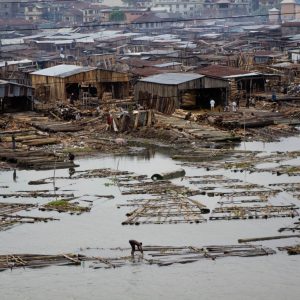The Stream, February 21: Pope Francis Calls For Prior Consent For Resource Projects
The Global Rundown
The pope insisted that the prior and informed consent of indigenous communities is essential for avoiding conflict over resource development projects, many of which are opposed due to water concerns. Kenya’s government paid a record amount to pastoralists under its livestock drought insurance program this month. A humanitarian appeal for drought-hit Madagascar remains underfunded. Singapore announced plans to increase water rates to meet growing demand. Snow and rain continued to boost water supplies across the western United States, improving the outlook for the Colorado River. Communities in Georgia’s Upper Svaneti region remain concerned about a proposed hydropower dam. Climate change could compound water problems in Mexico City, which is already sinking due to groundwater pumping.
“The right to prior and informed consent should always prevail…Only then is it possible to guarantee peaceful cooperation between governing authorities and indigenous peoples, overcoming confrontation and conflict.” –Pope Francis, affirming indigenous peoples’ right to determine the fate of development projects on their land at the global meeting of the Indigenous Peoples’ Forum in Rome last week. Violations of this right have led to conflict over major mining and energy projects around the world, many times because they threaten local water supplies. (Guardian)
By The Numbers
29 percent Amount of the United Nations’ humanitarian appeal for Madagascar that has been funded. A drought has exacerbated food and water shortages that, coupled with poor governance and poverty, have left nearly 850,000 people in need of aid. Los Angeles Times
12,000 households Number in Kenya that will receive $2 million in payouts from a government livestock insurance program this month. It will be the largest payment made under the program, which aims to help pastoralists weather a deep drought. Reuters
30 percent Increase in water prices Singapore will implement over the next 18 months, the first rate increase in nearly two decades. The additional revenue will maintain infrastructure and allow the city-state to boost supplies from desalination and its recycled NEWater system. The Straits Times
In context: Learn how Singapore turns municipal wastewater into drinking water.
Science, Studies, And Reports
The outlook for water deliveries in the Colorado River Basin continues to improve as winter rain and snow replenish water supplies across the western United States. There is now a 34 percent chance that officials will be forced to cut state water deliveries in 2018, down from a 50 percent chance as of last month, according to the Bureau of Reclamation. Los Angeles Times
On The Radar
Communities in the Upper Svaneti region, a UNESCO World Heritage site in Georgia, worry that the country’s plans to boost hydropower will threaten their homes and livelihoods. The source of the discord is the 280-megawatt Nenskra dam, which would divert flows from the Nakra river and flood approximately 400 hectares of land. Reuters
Mexico city is sinking as it pumps groundwater, a problem expected to worsen as climate change pushes up temperatures that contribute to water demand. Reservoirs outside of the city are also vulnerable to severe droughts, a scenario that would raise “the serious possibility of unrest,” according to the director of the city’s water system. The New York Times
In context: Learn how sinking land is creating a water chokepoint in California.
A news correspondent for Circle of Blue based out of Hawaii. She writes The Stream, Circle of Blue’s daily digest of international water news trends. Her interests include food security, ecology and the Great Lakes.
Contact Codi Kozacek




